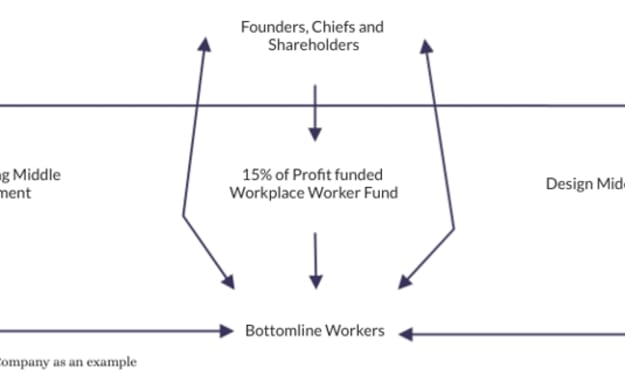Why are Economists always wrong?
Why do Economists always seem to fail at predicting what will happen? or rather, why do the ones we hear from in the Mainstream, always seem to get it wrong?

Economics is one of the "pillars of class" that we think of in the mainstream. The immediate thought by the layman is that Economists are geniuses or, at the very least, talented in ways that they couldn't imagine being. I'm an Economics student and I get told on the daily that I must be "gifted" or a "nerd", or something about Mathematics. But I'm afraid to burst a bubble, Economics itself isn't particularly Mathematical at least, not real Economics.
Economics is mystified more than it ought to be, people think that Economists are geniuses, we're not, that all Economists agree, we don't and that we're somehow a monolith, we aren't. Economics is more about understanding the possibilities of cause and effect, knowing and studying the causal relationships between individuals, firms (business), and Government. There are different schools of Economics and every single school comes to very different conclusions on different topics.
So, why do Economists in the mainstream seem to get it wrong about recessions, depressions, financial crashes, and crunches? Well, I think the real question is, who is mainstream and why. As I said before, there are different schools of Economics; Neo-Classical, Keynesian, Marxian, Ricardian, Developmental, Institutional Economics, etc. Now, I can only speak to what I and colleagues have mentioned about our own experience in Academia. But to all of us, It seems that the Majority of Economists and Economic departments in most Ivy League schools are not part of this "mainstream" Economic thought that seems to get it wrong.
The Majority of the "mainstream" Economic thought is usually Neo-Classical Economists. Neo-Classical is where we get the idea of Supply and Demand Economics. An idea that Supply and demand drive everything we know about the Economy of the market and the world around us, and that it's just a matter of doing some clever graph work and logical thinking to guess where it's going to go next. But Neo-classical and Neo-classical adjacent Economic schools like the Chicago and Austrian schools are not the Majority. Far from it, you'd have to be actively looking for an Austrian School Economist to turn them "mainstream".
The real Majority of Economists, aka the ones we largely don't hear from in mainstream press, are Keynesian Economists. Keynesians have largely been correct about predicting Crashes and volatility in the market. Mainly because they don't start from the point of view that the Market is a monolith and perfectly balanced, unlike Neo-classical. Keynesians and Marxian Economists both largely agree that the market and Capitalist Markets are extremely volatile and unknowable. However, there are some known unknowns. For example, we know how to predict volatility. Just wait for a hedge fund to tweet a prediction that a stock is going to plummet and then watch it plummet in real-time.
Markets are volatile because people are volatile, all it takes is a person with influence and a popular view of the market to say something is about to happen and it will happen. Elon Musk is an excellent example of this, he's pretty much mastered this side of Influencer trading. Dogecoin was just a meme cryptocurrency with not much of a following outside of the penny stock crowd. Elon Musk tweets the word "Doge" once and the value of the coin skyrockets making the value of the Dogecoins Elon has skyrocketed as well, allowing him to liquidate and make off like a bandit.
So, are Economists wrong all the time? No, Neo-classical Economists are because they still boil down to the idea that the market is some kind of inalienable thing. There is one key example of an Economist getting something correct.

This rather Photogenic or Creepy (depending on your perspective) chap was Hyman Minsky. Minsky was an American, Post-Keynesian Economist in the 50s and up until his death. Minsky famously predicted the 2008 Financial Crisis almost perfectly. The key thing to note is that he predicted this in the 1970s and was called out as wrong, or exaggerating the effects of the market.
Minsky came up with the Minsky Financial Instability hypothesis, more commonly referred to as Minskynomics or "The Minsky Moment". Minsky argued that Instability in the Economy and core volatility in the Economy weren't caused by Public debt, but instead by Non-governmental debt. Aka debt held or created by the Private Sector, eg, banks, debt collectors, etc.
Minsky said that the accumulation of "bad debts" for example, Mortgages has a snowball effect on the Economy. Due to the way that debts are often transferred in ownership or sold, the original debt is never actually cleared. This results in the original debt continuing to tick up and up but never collected on which is a "bad debt". It clogs up balance sheets and is unproductive. But the only way to pay off a debt is to clear it, resulting in a complex web of debtors and debtee, and as we saw in '08 Governments were unable to pay off the debt to keep the banks open.
Resulting in these banks that were previously "Too big to fail" also being "Too big to bail". So, now we know Economists can be right about something. Why was Minsky ignored and why are Economists who are right today, also being ignored in the mainstream?
Well, it's the same reason as to why Minsky was ignored, Minsky was largely ignored because it was an inconvenient truth. This debt crisis was going on for years and even decades, which compounded it more and more. At the time, if the government were to step in and stop the debts in the 90s it would have cost the US Government $60 Billion. But no, it got to a point where a bailout cost the US Government around $668 Billion, aka half the cost of Medicare-for-all.
The fact of the matter is that if the US Government stepped in and bailed the bad debts and regulated against the selling of bad debts, the 08 crash wouldn't have happened. So, why are Economists being ignored?
Well, think about it, if you are a big corporate media regardless of political leanings. Do you want to interview an Economist who has a chance of being right or one whose more optimistic but wrong? Like, in their mind, they interview someone whose right and their stock crashes because of the volatility or they talk to someone who is completely wrong but they can stay in business a bit longer. They'll stick to painting economists as unified optimists and then when shit hits the fan, they'll ask the same economists why they were wrong, and they'll say something like "Well, you can't predict everything" while a Post-Keynesian Economist's Therapist is getting their ear chewed off down the phone.
I should probably say something about the future of Heterodox (non-mainstream) Economists but to be completely honest, I have no idea if Heterodox Economists are going to become mainstream, given the volatility of the market. It's unlikely that we ever will. But I will say this, if you are a Trader, especially in Government bonds and you want to know what's what, look for a Post-Keynesian or Heterodox Economist first, you're much more likely to get a straight answer and lessen your risks of losing money.
About the Creator
Quaker-nomics
My name is Abe, I'm a 3rd year Business Economics student mainly specialising in Alternative Business structures like Co-operatives and Accessibility. I mainly write about Business, Politics, Sociology and some personal stuff.
He/him






Comments
There are no comments for this story
Be the first to respond and start the conversation.